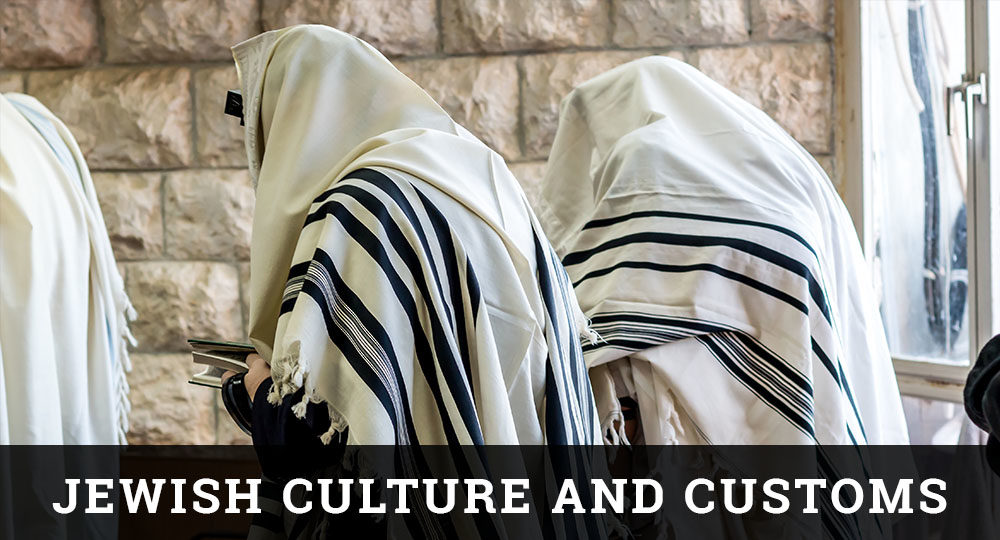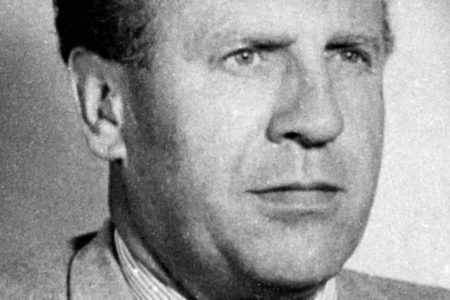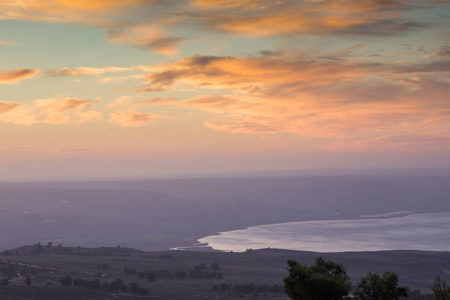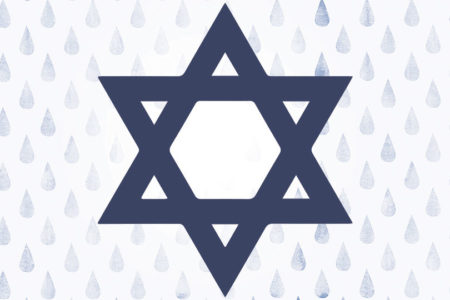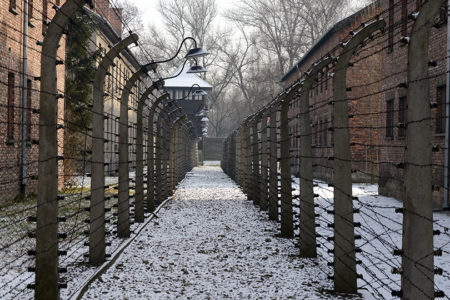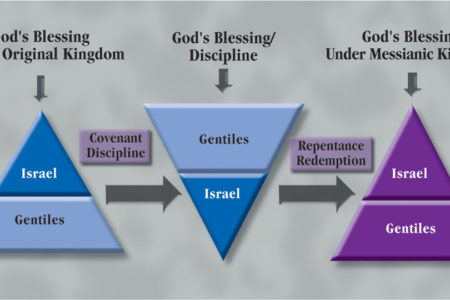A Day for Remembering Yom Hashoah
Some of the most disturbing words in all of Scripture are found in the book of Esther:
There is a certain people scattered abroad and dispersed among the people in all the provinces of thy kingdom, and their laws are different from all people; neither keep they the king’s laws. Therefore, it is not for the king’s profit to tolerate them (Est. 3:8).
These are Haman’s words to Ahasuerus (Xerxes) of Persia around 500 B.C. Haman’s hatred for the Jewish people was not a secret, so it was no surprise that he wanted all of them—men, women, and children—killed. As chief advisor, a position of great trust, he was able to convince Ahasuerus to sign a decree calling for the extermination of every Jew:
The letters were sent by posts into all the king’s provinces, to destroy, to kill, and to cause to perish, all Jews, both young and old, little children and women, in one day, even upon the thirteenth day of the twelfth month, which is the month Adar, and to take the property of them for spoil (Est. 3:13).
The Jewish people were presented as a liability (“not for the king’s profit,” v. 8) and an inherent danger (“neither keep they the king’s laws,” v. 8). According to this twisted logic, it was in the best interest of greater Persia to eradicate them and confiscate their assets. By God’s grace and providence, Haman failed to achieve his vile aim. Though God’s name is not mentioned even once in the entire book, we know He was there all the time.
Throughout history there have been many “Hamans” who have reared their ugly, anti-Semitic heads. The Jewish people have been targets of suffering and destruction most of their existence. They endured four hundred years of slavery in Egypt and saw their holy Temple destroyed by Assyria, then again by Babylon, each time resulting in their removal from their land by force. Since the time of the diaspora, when the Jews were scattered from their homeland and dispersed to all corners of the world —without a nation, government, or military—generations of men, women, and children have persecuted, driven out, and murdered the Jewish people. Think of the Crusades, the Spanish Inquisition, and the Russian pogroms.
Almost immediately upon emerging as an internationally recognized entity in May 1948, the 650,000 Jewish residents of that new nation of Israel were promised destruction by their 150 million Arab neighbors. In 1991 the shriek of air raid sirens announced the launches of thirty-nine Iraqi Scud missiles. Israelis were forced to huddle in sealed rooms, wearing gas masks and wondering if any of the warheads would bring deadly chemicals attached to them. Today Jewish people are targets for extermination by suicide bombers belonging to organizations with names like Hamas and Islamic Jihad. These bombers perpetrate such attacks while Israelis are waiting for buses, shopping at malls, or eating in restaurants.
However, one event dwarfs all these, standing alone in its ugliness. It was orchestrated by people who were purely evil, possessing the same vision as Haman and the same lust for power. Yet this event produced an unimaginable death toll. It was birthed by satanic hate, nurtured by fear, and sustained by greed. It is called the Holocaust (Hebrew: Shoah, meaning “burning”). It resulted in the annihilation of six million men, women, and children whose only crime was being Jewish. No other event in the twentieth century—or ever in history—put such blight on its citizenry.
Fifty-seven years ago the truth became known to the world as witnesses tried to describe the horror of the Holocaust. Gen. Dwight D. Eisenhower, supreme commander of the allied forces during World War II, once said, “The same day I saw my first horror camp, I visited every nook and cranny. I felt it my duty to be in a position from then on to testify about these things in case there ever grew up at home the belief or assumption that the stories of Nazi brutality were just propaganda.”1
Much has happened since Eisenhower spoke those words. Voices have arisen with a call to move on. But as one eyewitness to the liberation stated, “I would not believe it had happened in civilized nations. I pray to God that this cannot happen again.”2
Actively remembering (Hebrew: zachor) is incredibly important for the Jewish people. They remember their redemption from slavery out of Egypt at Passover, their deliverance from the Persians at Purim, and their deliverance from Antiochus at Hanukkah. Each of these days celebrates the preservation of the Jewish people. There is great joy in celebrating their deliverance.
Yet there is no joy in remembering the Holocaust. Establishing a day of remembrance for the Holocaust was not something Jewish people wanted; it was something they needed. Almost immediately after the establishment of the nation of Israel in 1948, a debate began between Israelis as to how and when to remember the Holocaust. They considered several dates. One was the tenth of Tevat(December–January), a day the Jewish people remember the siege of Jerusalem in 586 B.C., confirmed in 2 Kings 25:1. They rejected this suggestion because it had no connection to the Holocaust.
Many wanted the date of the Warsaw Ghetto uprising, April 19, 1943, to provide a direct link to the events of the Holocaust; but they rejected this date because it is too close to Passover.3 A stalemate ensued until 1950 when they selected an alternate date of 27 Nisan. Falling beyond Passover, it is close to the time of the Warsaw Ghetto uprising. Many Orthodox Jews felt it was wrong to have it anytime in the month of Nisan because of Passover, but they reached a compromise by saying if it fell on the Sabbath it would move to the next Sunday, which would be in the next month.
And so it was that the Knesset (Israel’s parliament) proclaimed April 12, 1951, Yom Hashoah U’ Mered HaGetaot, Holocaust and Ghetto Revolt Remembrance Day. It was later changed to Yom Hashoah Ve Hagevurah (Devastation and Heroism Day). Today it is simply called Yom Hashoah.4
Yom Hashoahis not a day to celebrate but to remember. How? What do people do? The answer to those questions depends on the people or organization remembering the day. Jewish community centers, synagogues, and individuals observe this day in varied ways. For instance, ceremonies are held in which six candles are lit, each candle representing one million Jewish deaths. In conjunction with the candle lighting, prayers and/or poems are recited. Sometimes people choose to abstain from food to identify with many who were starved.
Holocaust museums also host varied programs. These remembrances usually include a reading of the names of those who died. Heartwarming stories are often told of the little things done during that time to keep hope alive or to celebrate Jewish community.
One such story took place in Auschwitz, the infamous death camp. It was December, the time of cold winter and Hanukkah. The Jews there wanted to celebrate this Festival of Lights but had no candles to do so. The Nazis certainly would not provide them with candles, so the people saved small portions of butter until they had enough to make one candle. They gathered around secretly and had the rabbi recite the blessings.
The third blessing stated, “We thank God for bringing us to this day.” Several asked the rabbi how he could pray such a prayer. The rabbi wondered as well until he looked at all the faces, emaciated, yet glowing, from the light of the candle. “I . . . had to bless Hashem [God], for allowing me to live to see this assembly of martyrs who sanctify the name of G-d in public, who keep their faith amidst the flames,” he answered.5
The need to remember in the midst of such horror is an amazing response indeed. That desire to remember might seem difficult for most Americans, at least until September 11, 2001. Since that awful day, people in America are now discussing various ways to remember the thousands of people killed.
The need for a day like Yom Hashoahbecomes clearer in light of such events that took place last fall in Durban, South Africa. At this meeting, attended by members of the United Nations, the world witnessed anti-Semitism in visual form, the likes of which have not been seen since Germany in the 1930s. Cartoon pamphlets depicting Jews as pigs and monkeys were passed out before the conference. Literature accusing Israel of being an apartheid regime that commits racist crimes against humanity, including ethnic cleansing, was distributed. It was vile. The UN High Commissioner Mary Robinson, to her credit, dramatically stood up in one of the meetings to express her outrage. As a Gentile woman she declared, “I am a Jew.”6 So outrageous was this conference, in fact, that the United States and Israel left it under protest.
Remembering the Holocaust is essential.
Foreign Minister Shimon Peres made this announcement before leaving:
In 53 years since the establishment of Israel we were attacked five times with an attempt to overpower us and bring an end to the State of Israel. We stand alone, outnumbered, outgunned, and we defended our lives. We won all the wars; we won a lot of territories. We gave back the territories, the water, the oil to Egypt. We gave back the land, the water to Jordan. We have withdrawn unilaterally from Lebanon in accordance with UN resolution 425. We offered the Syrians an exchange of land for peace; we have offered the Palestinians something that no Arab country did before us because the West Bank and the Gaza strip were under Arab control. We offered them an independent state. They rejected it. Instead there was the Intifada, and even today there were four bombs in Jerusalem the capital of Israel.7
Remembering the Holocaust is essential.
As Christians, should we have anything to do with a day devoted to remembering the Holocaust? To answer that question, I will ask another question. How could we not? As Christians, we should remember an event that so epitomizes the satanic influence held over so many people and countries, especially when we see it fresh today.
Yom Hashoahreminds us of the suffering at the hands of an evil regime, the Nazis; but it also reminds us of the goal of all anti-Semitism. Instigated by Satan himself, it is his attempt to destroy the apple of God’s eye, His people, Israel.
As the Jewish people must remember the Holocaust, we must pray for and remember them before the Lord. We must stand by Israel.
ENDNOTES
- General fundraising letter of the U.S. Holocaust Memorial Museum, undated, p. 1.
- Ibid.
- Jennifer Rosenberg, “Holocaust Remembrance Day,” “20th Century History,” “Remembering Vietnam,” com [http://history1900s.about.com/ library/holocaust/aa042398.htm].
- Ibid.
- Rabbi Yehuda Prero, “Yom HaShoah— How to Remember the Holocaust,” org, [www.torah.org/learning/yomtov/ holocaust/no1.html].
- The Jerusalem Post Internet Edition, “News From Israel,” August 30, 2001, [www.jpost.com/Editions/2001/08/30/ News/News.33743.html].
- Jimmy DeYoung, Prophecy Today, September 4, 2001, [www.gospelcom.net/ shofar/pp/html/article.php].
